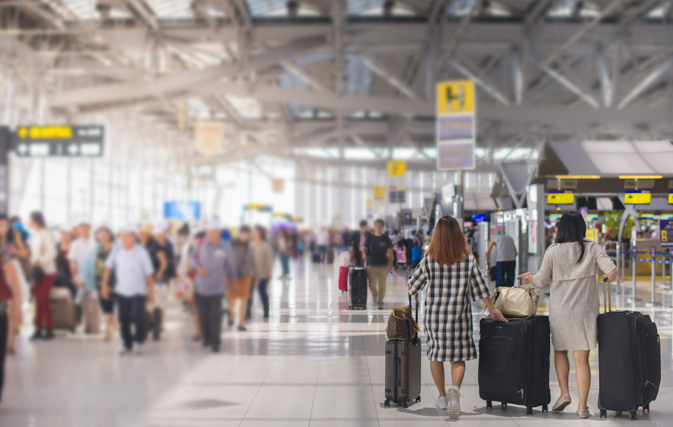GENEVA — Global passenger traffic remains strong, says IATA, which in its February traffic results report a second month of demand to begin 2017.
Total revenue passenger kilometres (RPKs) rose 4.8%, compared to the same month last year. Although this was below growth achieved in January, year-to-year comparisons are distorted due to the fact February 2016 was a leap month. Adjusting for the one fewer day this year, the underlying growth rate was estimated at 8.6%, just under January’s increase of 8.9%. Monthly capacity (available seat kilometers or ASKs) increased by 2.7%, and load factor rose 1.6 percentage points to 79.5%, which was the highest ever recorded for February.
“The strong demand momentum from January has continued, supported by lower fares and a healthier economic backdrop. Although we remain concerned over the impact of any travel restrictions or closing of borders, we have not seen the attempted US ban on travel from six countries translate into an identifiable traffic trend. Overall travel demand continues to grow at a robust rate,” said Alexandre de Juniac, IATA’s Director General and CEO.
February international passenger demand rose 5.8% compared to February 2016, which was down compared to the 9.1% yearly increase recorded in January. Adjusting for the leap year, however, growth actually accelerated slightly compared to January. Total capacity climbed 3.4%, and load factor rose 1.8 percentage points to 78.4%.
European carriers saw February demand increase by 6.5% compared to a year ago, while Middle East carriers had the strongest growth, with a 9.5% demand increase. North American airlines’ traffic climbed 0.3%, which was the slowest among the regions. However, adjusting for the leap year, growth was estimated at 3.4%.
The bottom line? “The year has opened with some shocks”, says IATA, like the attempted travel ban to the U.S. and the electronics ban from certain airports in the Middle East and North Africa on direct flights to the U.S. and the U.K. The potential implications of the Brexit talks on the air transport industry are significant and the political rhetoric of protectionism and closing of borders is adding to the ambiguity.
“It’s intolerable that governments continue to add to the uncertainties facing the air transport industry by failing to engage airline operational know-how on issues that can damage public confidence. The introduction of restrictions on the carry-on of large electronic devices was a missed opportunity and the result was a measure that cannot stand-up to the scrutiny of public confidence in the long term. Although Australia’s measures were also implemented without consulting the industry, they at least demonstrate the potential to mitigate the threat with less disruptive means. We all want to keep flying secure. And we can do that most effectively by working together,” said de Juniac.

